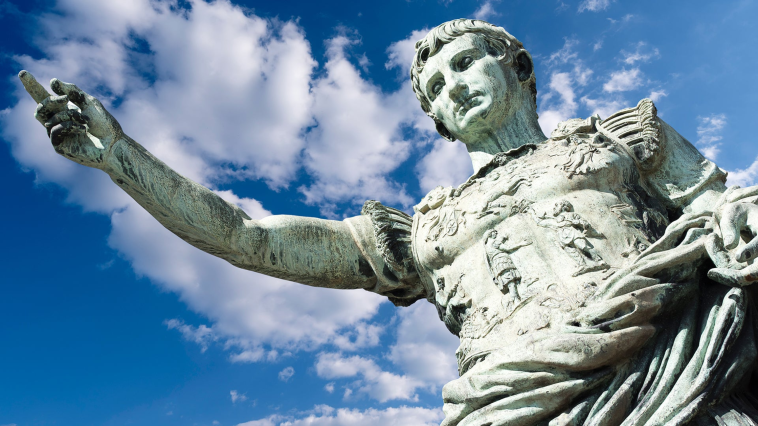Julius Caesar is one of the most iconic figures in the annals of history, known for his pivotal role in the demise of the Roman Republic and the rise of the Roman Empire. Born on July 12, 100 BC, into the patrician Julian clan, Gaius Julius Caesar emerged as a brilliant military commander, astute politician, and transformative leader whose impact on Rome is unparalleled.
Caesar’s early years were marked by political turbulence and personal challenges. Despite these obstacles, he quickly ascended the political ladder, starting as a prosecutor and moving through various magistracies. His military career began in earnest with his appointment as the governor of Hispania Ulterior, where his successful campaigns against local tribes earned him a formidable reputation.
In 60 BC, Caesar formed the First Triumvirate with Pompey the Great and Crassus, a political alliance that dominated Roman politics. His subsequent appointment as consul in 59 BC and proconsul of Gaul granted him unprecedented military command. Over the next decade, Caesar embarked on the Gallic Wars, a series of campaigns that expanded Rome’s territories to the English Channel and the Rhine. His detailed accounts of these wars, “Commentarii de Bello Gallico,” provide invaluable insights into his military strategies and political acumen.
Caesar’s crossing of the Rubicon River in 49 BC marked a turning point in Roman history, igniting a civil war against Pompey and the Senate. His bold declaration, “alea iacta est” (“the die is cast”), signified his irrevocable commitment to challenge the existing order. After a series of decisive victories, including the Battle of Pharsalus in 48 BC, Caesar emerged as the uncontested leader of Rome.
As dictator, Caesar implemented sweeping reforms that laid the foundation for the Roman Empire. He restructured the Roman calendar, established colonies, and expanded citizenship rights. His centralization of power, however, stirred fears of tyranny among his peers. On March 15, 44 BC, known as the Ides of March, Caesar was assassinated by a group of senators led by Brutus and Cassius, an event that plunged Rome into further civil strife.
Despite his assassination, Julius Caesar‘s legacy endured. His reforms and conquests profoundly shaped Roman society and governance. His adopted heir, Octavian (later Augustus), completed the transformation Caesar had begun, establishing the Roman Empire. Caesar’s life and death have been immortalized in literature, particularly in William Shakespeare’s play “Julius Caesar,” ensuring his story remains a cornerstone of historical and cultural discourse.




